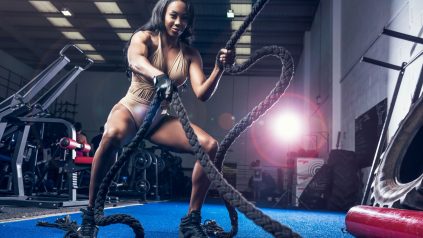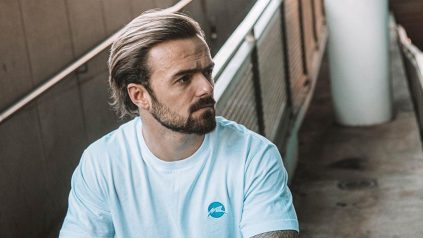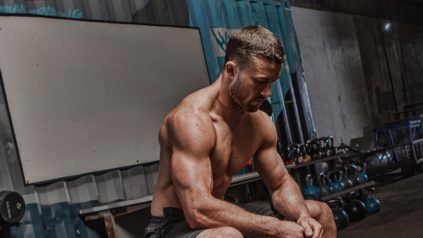Welcome to the next instalment of our ongoing interview series, Making Gains.
At Insure4Sport, we love speaking to industry professionals to get their insights into what it takes to reach the top and stay there.
We recently brought you an interview with Luke Beastall of Musclecoach UK – give that a read if you haven’t already.
For this next instalment, we’re sitting down with Laura ‘Biceps’ Hoggins. Laura is a highly experienced personal trainer and is currently a director at The Foundry, which has three gyms in London.
Laura came runner-up in the ‘50 Best Fitness Influencers To Follow On IG’ list published by Insider in 2018, was described as ‘the undisputed lifting queen’ by Stylist, and if that’s not enough – she’s also a published author. Her debut book, Lift Yourself, was released in 2019.
We asked Laura how she’s become such a recognisable and empowering figure for women in the fitness industry. Here’s what she had to say.
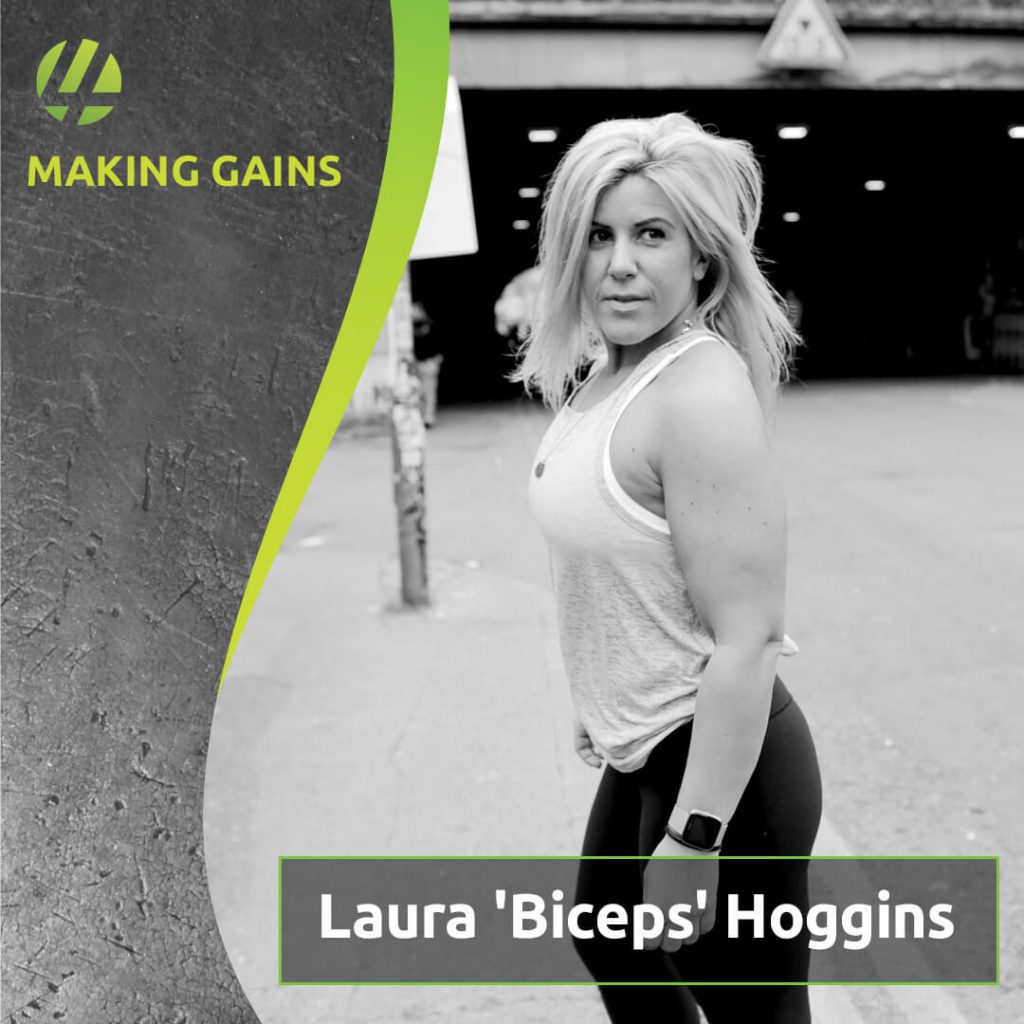
1. You say on your website that you haven’t always been ‘fit’ and used to lead an ‘unhealthy’ lifestyle – can you describe your journey towards being a personal trainer and some of the obstacles you overcame along the way?
Growing up, I literally did every single sport there was – netball, football, basketball, hockey, canoeing, even chess!
I was an only child who loved to be active and mainly participated in team sports. But then, I guess, as I grew up, got into my teens and went to university, booze and partying took over, and I lost that sense of ‘looking after myself’.
I would live off very little sleep and try to function. I guess at some stages in life, you can get away with it. I was a smoker and was surrounded by alcohol and late nights.
This, mixed with big deadlines and high stress, was a recipe for burnout, and that’s what happened. I got to the stage where I felt so low that I decided I needed to take action.
I turned to the gym. I joined a CrossFit near to my office, and it became my escape. I saw the gym as an opportunity to better myself physically and mentally and be a better employee. Years later, I paired my passion for sport and fitness with my commercial acumen and decided to make it my career.
2. You’re known across the industry as ‘Biceps’ – how have you carved such a distinctive brand for yourself?
It’s been amazing, but the pressure is on because now I can’t ever stop training arms, right?
‘Biceps’ started off as a bit of a playful nickname from my friend in the industry, Mr PMA Faisal Abdalla (another celebrity PT), when I started going to his classes at Barry’s Bootcamp.
I was training at CrossFit, too, and the changes to my body were very noticeable – I got big arms and a big back and chest! So, Faisal used to shout out “Oi Biceps!” on the mic in class, and it just stuck.
I think it also represents a bit of the antithesis of what women are often told they should look like, i.e. long and lean – but no, I want to be big and strong!
I keep my communication honest and unrehearsed. It’s just what I love to do. I never have to pretend, I am just me, and that seems to be relatable for many people.
3. Describe your training philosophy – what is your ethos, in a nutshell?
My training ethos centres around my own personal happiness. If I’m not happy, I acknowledge it, and I change something. I believe in taking swift action to better myself because life is too short.
I also believe in personal accountability and being honest with yourself, and if you’re doing something that makes you happy, you will learn to love the results of that – regardless of what it is.
4. Talk us through a typical day in your life at The Foundry.
I am a Director at The Foundry, and we have three gyms across London. So, on a typical day, my alarm will go off at 4.50am for a 6am coaching start.
I then take three hours of team training, whether that’s small group personal training or one of our award-winning classes. Our members are awesome – your vibe really attracts your tribe, and our community is so supportive. They work hard – it’s not about taking mirror selfies and doing it ‘for the gram’, it’s about turning up and getting stuck in.
After multiple fist pumps, I then take myself to a quiet(ish) space to get on the laptop, check my emails, go through finances with my business partner, Ben, and then decide on what actions we need to take that week to support and drive the business moving forward.
As everyone knows, it’s been a tough couple of years for our sector, but we are focused on making sure we can make a difference to people’s lives at The Foundry.
Later in the day, I will train myself or jump into a class with the team, then maybe some more meetings, more emails, then I’ll check in with some more of the team before heading home.
5. Do you feel there is sometimes a stigma towards female personal trainers? How do you deal with that, if so?
Yes, sometimes I have definitely thought this in the past.
I didn’t find it easy starting out in such a male-dominated industry, but I haven’t felt this way for a long time now, which I think is a sign of the incredible professionals I am surrounded by and get to call my peers every day.
We are open to learning and developing our assumptions about individuals, and I think it is important not to judge anyone wanting to forge a career in this industry.
I also think there’s sometimes a wider assumption that all women PT’s are focused solely on pre and post-natal, yoga, pilates, or toning – which isn’t true either.
All individuals that identify as women should feel that they have the same opportunities to help and coach others to be healthier and fitter. I have pretty much ignored everyone that told me this career wasn’t a good idea for me or those that perhaps told me to stop lifting as heavy if I wanted to be appealing as a trainer when in actual fact, that’s been one of the main reasons I became so noticed!
So, ignore what everyone else says; be true to who YOU are, and if you’re a woman – just remember you have just as much right to be successful as anyone else.
6. How can budding and existing personal trainers encourage more women into the fitness industry?
If you’re a woman in the fitness industry, I think it’s important to try and show the reality; yes, show off the highs but also the more challenging aspects of the job – such as the anti-social hours and the energy it requires to build rapport and trust with clients.
Social media will have you thinking you have to post six ab workouts a day to be a good trainer, but the reality is all the good PT’s with an in-gym client base are too busy coaching to worry about sharing what they had for breakfast on Instagram!
7. Tell us about your podcast, Biceps with Banter.
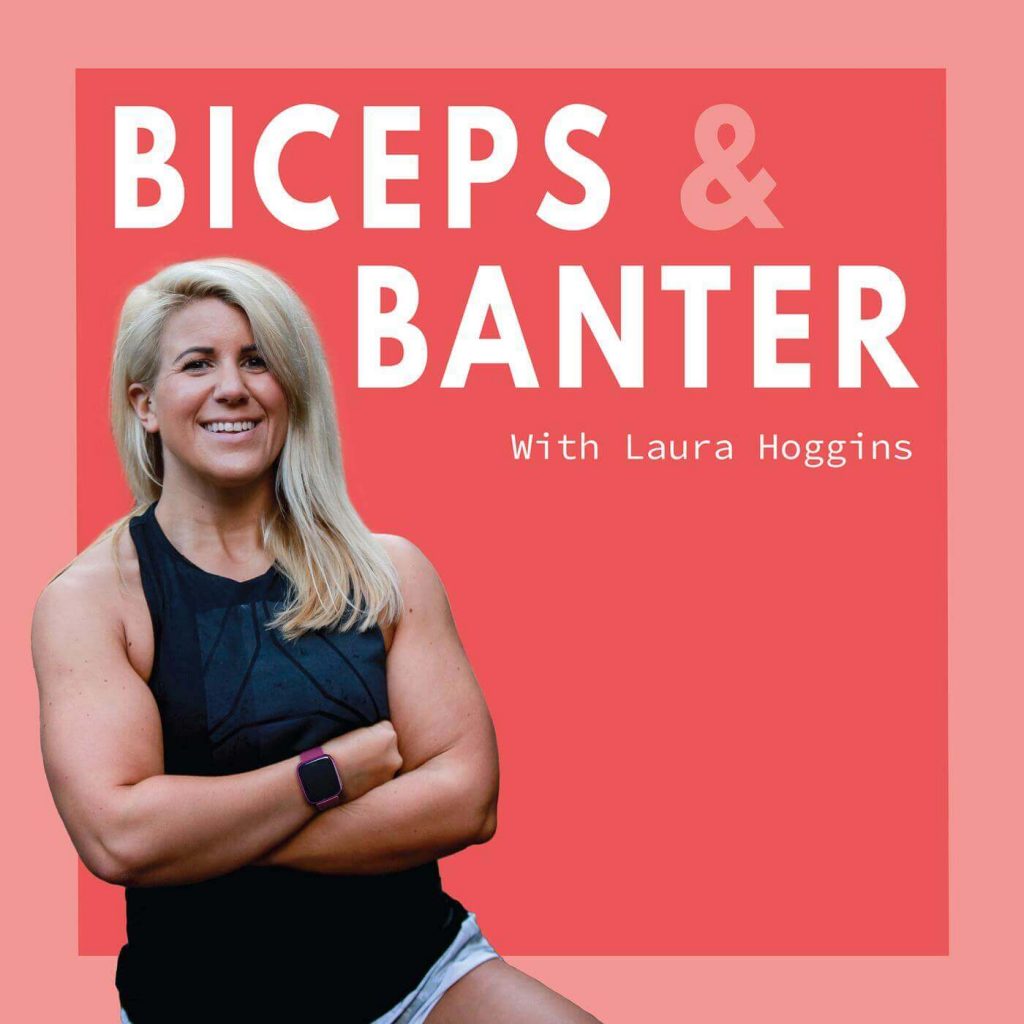
I wanted to start a series to showcase the people that, in my opinion, perhaps weren’t receiving the recognition they deserved for the work they do and the values they deliver.
I wanted to shine a light on people who have gone ‘against the grain’ of the industry and are walking the walk as well as talking a good talk. I wanted to work with people who were also exceptional characters, business people, elite athletes in their own right, and people that could just have a bit of a laugh.
It’s not that deep or serious – we are all here with the same goal to be the best we can be, and I wanted to highlight some incredible journeys and careers from the industry.
8. What are the main challenges you’ve faced as a personal trainer, and how have you overcome them?
As a personal trainer, the hours you work are not often very sociable. My whole life turned upside down when I first started out, as I was essentially working when all my friends weren’t.
Suddenly, I was the one going for a green tea and an early night because I had to be up and full of beans and ready for my morning clients at 6am. I couldn’t go out drinking like I used to; I had to change everything and ensure that because I was now the ‘product’, I was showing up the best I could be for others.
You have to learn to be ruthless with your time, routine and energy. Create your own ‘non-negotiables’, understand what success looks like to you, and go and chase it.
9. Tell us about the process of writing your book, Lift Yourself. Where did the idea for this come from?
I’ll be honest – I never thought I’d be an author. It still slips my mind to this day that I even managed to write a book!
But in truth, I think it was the making of me. It was an opportunity for me to put pen to paper and state my knowledge to date as a trainer, as a person who has been through a long journey of self-discovery, and I feel so relentlessly passionate about sharing that with others.
I was approached by two lovely ladies who came to train with me at a studio in London at my group strength class. They told me that the way I delivered fitness was different, the way I talked to clients was different, it wasn’t about ‘smashing it’ or ‘burning calories’ or ‘earning your Easter egg’, it was instead about sharing my knowledge, empowering people to feel confident about themselves in the gym, to lift something they didn’t think they ever could, and so on.
The idea for Lift Yourself was born, and three or four months, many sleepless nights and stressed phone calls later, I’d published a book. I’m so proud of it, and I’d write those exact same words again tomorrow.
I certainly don’t know all there is to know about fitness, but I do know that the basics are proven to work, so don’t get trapped in the trends – do well consistently, keep showing up, and the good stuff will come.
10. What is your proudest career moment to date?
Being able to tell my parents that I was finally able to buy my own home and take on a mortgage was a very proud moment.
It is so difficult to build momentum on your earnings when you’re starting out, and having income and self-employment records that are reliable enough for banks to look well upon you to grant you a mortgage can take its time.
I could tell you about the awards I’ve won, but they don’t pay my mortgage!
11. What are the most successful marketing strategies personal trainers can use, from your experience?
- Be yourself – honestly, imagine how much hard work it would be pretending to be something you aren’t.
- Project your training values and ethos.
- Show prospective clients the problems that are keeping them up at night that you can help them solve.
- Show clients your value – you’re not too expensive. You just haven’t yet proven to them how valuable you are.
12. How important is it for personal trainers to have insurance?
Having insurance as a personal trainer is absolutely essential. It is a non-negotiable for anyone I hire or work with and should be part of the bare minimum expected by your clients.
While I appreciate that finances can be challenging in our industry, but don’t let it be something you try to save on, and give yourself the worry of ‘what if’ something happened.
Get in touch with Insure4Sport and take that headache away from yourself!
Many thanks to Laura, or ‘Biceps’, for her insights!
You can follow her on Instagram here and find The Foundry gyms in Vauxhall, Old Street and Bank, London.
Specialist personal trainer and facilities insurance from Insure4Sport
If you dream of making gains as a personal trainer like Laura, you need to make sure you’re insured first.
At Insure4Sport, our specialist insurance for personal trainers and sports facilities is designed to protect you, your equipment, gym, staff, and customers.
Our insurance protects you if your equipment is lost, damaged, stolen, and in the event of an injury claim made against you following a session.
But don’t just take Laura’s word for it. Click on the button below to learn more about how our specialist insurance can help you and get an online quote in minutes.
Related
Making Gains: Luke Beastall, Owner of Musclecoach UK


